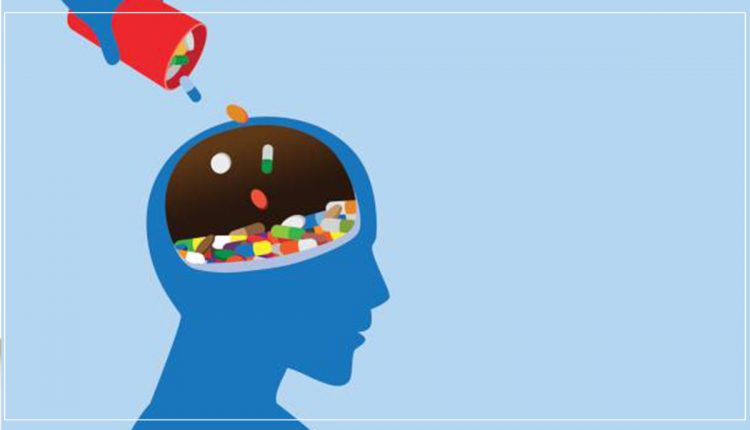
Four ways to effectively fight drug addiction
Drug addiction has become a major social health problem. It is a condition that makes an individual dependent to a substance or object that can cause maladaptive behaviors, conflicts in relationships and cognitive impairment amongst the user. As a result, addiction rates have been rising significantly over the past few years in developed nations as well as developing countries like Pakistan.
According to the Drug Use in Pakistan 2013 Report, an estimated 6% or 6.7 million people aged between 15 and 64-years are suffering from substance abuse.
Despite this massive health problem, only a fraction of people seek the treatment they need. People with addiction require different treatment approaches that are integrated and coordinated to provide the best outcome and prevent relapse. There are many treatment options available, including pharmacotherapy, psychotherapy, meditation and mindfulness training. According to the Drug and Alcohol Psychosocial Interventions Professional Practice Guidelines (2008), psychotherapy is thought to be the foundation of addiction treatment, especially for substances where pharmacotherapy has not been beneficial.
American Psychological Association defined psychotherapy as,
“A practice designed to provide symptom relief and personality change, reduce future symptomatic episodes, promote adaptive functioning in work/school and increase the likelihood of making healthy life choices”.
A wide range of psychological treatment options is available that vary in their approach depending on the goals of treatment. However, I will highlight four different psychological approaches that have been proved to be effective in treating addiction, and relapse prevention.
Motivational enhancement therapy (MET)
It is an organized approach for evoking change in people with addiction, especially alcoholism. It is derived from the trans-theoretical model of change proposed by James Prochaska. This model consists of five sequential stages of change that are used to describe the process of ceasing drug abuse. Thus, the MET approach assists the client in moving through the stages toward successful sustained change.
Contingency management (CM)
Proposed by Skinner, it is based on the theory of operant conditioning, in which consequences (i.e. reinforcement and punishment) are used to lessen substance use. For example, in maintaining compliance and attendance in treatment sessions, a client might receive positive regards and prizes to reinforce that behavior. On the other hand, if the client shows less desirable behavior such as missing-out treatment sessions, he or she might receive the punishment to decrease that behavior. CM approaches are widely used in increasing drug abstinence.
Twelve-step facilitation therapy (TSF)
It is rooted from the Minnesota model of addiction treatment. The basic idea behind this model is that alcoholism is treated as a disease and its treatment should include physical, social, and, spiritual dimensions. TSF consists of structured approaches based on the cognitive, behavioral and spiritual principles. The three key ideas that predominate include acceptance, surrender and active participation in 12-step meetings and associated activities as discussed in the above scenario.
Multidimensional family therapy (MDFT)
It is a family-focused therapy specializing in the treatment of youth drug abuse. The central principle of MDFT is family engagement, which is essential in creating a new adaptive lifestyle alternative for adolescents. The approach has four interventional domains: adolescents, parent, family and extra familial social system.
Discussed above are some psychological approaches that have proved to be effective in dealing with addiction. These therapies are performed by trained psychologists, but other healthcare members can also play a key role in alleviating addiction. It is essential to establish and maintain therapeutic relationship with patients in order to identify patient needs, offer emotional support and help in promotion and recovery of patients in every aspect of life.
Moreover, healthcare professionals should collaborate with hospitals and community institutions and take participation in awareness programs and rehabilitation of addicted patients. It is also recommended that government and private sector universities should launch training programs and courses on psychotherapy to fulfill the requirement of trained staff. In addition, monitoring and evaluative research should be conducted to gauge the effectiveness of psychological interventions and outcomes.
In conclusion, addiction constitutes a major health problem. However, many addicts are still left untreated. There are many psychological therapies available that are effective in treating an addiction, i.e. MET, CM, TSF and MDFT. In my opinion, by utilizing health awareness programs in hospitals as well as in community settings, we as healthcare professionals can change people’s perceptions and replace stigma with a new understanding of addiction as a treatable disease.
This post originally appeared here: http://blogs.jpmsonline.com/2015/06/26/management-of-addictions-what-could-be-the-most-effective-approach/
About the author: Nighat Karim Maknojia is currently a BScN student at the Aga Khan University School of Nursing and Midwifery, Pakistan.

